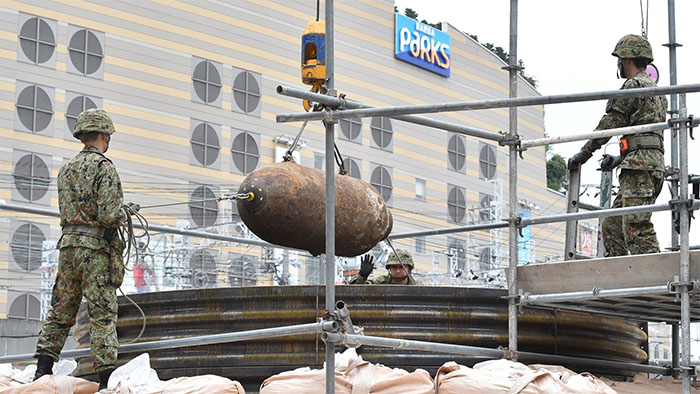Renovating a historic home in Kamakura may soon become easier

Kamakura City is considering introducing an ordinance that would allow owners of historic buildings to bypass some of the regulations under the Building Standards Act that normally apply for renovations, extensions and changing the use of a property.
When making structural additions or alterations to older buildings, it can be very difficult to make the building comply with the Building Standards Act while still retaining the original features. In many cases property owners simply give up and either rebuild or leave the property to deteriorate. As a result, the neighbourhood begins to lose its character over time as the older properties are demolished.Read more
Illegal AirBnbs found operating out of semi-public housing
 The Urban Renaissance (UR) Agency is cracking down on tenants who are illegally subletting their rental apartments to provide short-term accommodation to foreign tourists.
The Urban Renaissance (UR) Agency is cracking down on tenants who are illegally subletting their rental apartments to provide short-term accommodation to foreign tourists.
According to UR, as many as 80 rental apartments were found to be illegally sublet by tenants. The majority of the properties were in UR-operated buildings in Tokyo and Osaka. The agency became aware of the issue after receiving a growing number of complaints from residents reporting large numbers of foreigners with suitcases coming and going from apartments.Read more
Apartment owners battling with short-term accommodation hosts
High-rise apartment buildings with hotel-like facilities, such as lounges and guest rooms, are growing increasingly popular in urban centres such as Tokyo and Osaka. However, these buildings are also proving popular with hosts providing illegal overnight accommodation through booking sites similar to AirBnb. The increasing number of foreign tourists coming to stay in these residential buildings is creating unintentional problems with building residents.
Facing complaints from residents, condominium management associations are scrambling to introduce building bylaws to ban short-term rentals.
Since new bylaws were introduced in The Tokyo Towers complex in Kachidoki, Chuo-ku, Tokyo, residents have found it easier to book the on-site guest suites. The two-tower complex has approximately 2,800 households. Residents can book the 11 guest suites at low rates for when family members or friends come to visit.Read more
An agent’s disclosure obligations regarding stigmatised properties
Under Article 47 Item 1 of Japan's Real Estate Brokerage Act, agents are prohibited from intentionally failing to disclose any matters relating to the building that may have a serious affect on the client’s decision to proceed with the transaction.
This means that real estate agents are obligated to notify clients of defects to a property, such as suicide, murder or other unnatural deaths, but only if the agent is aware of these defects at the time. There may be times when an agent is unaware, in which case they cannot be held liable. This can occur if the landlord or seller was purposely withholding this information from the agent, or if there was an unnatural death or murder that was not reported to the property owner or management company. The owner of the property, however, may be held responsible even if they were unaware of the defect.Read more
Landowner suing Osaka City for bomb disposal fees

A landowner in Osaka is fighting the city over the disposal costs of an unexploded ordnance (UXO) unearthed during construction. The property owner filed a civil suit in the Osaka District Court seeking the reimbursement of the 5,760,000 Yen in bomb removal fees.
In March 2015, a 1.8 meter long American-made bomb weighing 1,000kg was found buried two meters underground in an apartment construction site in the Namba area. A 300-meter evacuation radius was established while the Self-Defense Forces removed the bomb. As many as 2,200 residents had to temporarily evacuate, and the nearby Nankai Main Train Line had to stop operations for a three hour period. Read more
3 arrested for selling investment apartments without real estate license
Three people have been arrested under suspicion of brokering the sale of investment-type apartments to buyers without having the necessary real estate licenses, and through dubious sales tactics.
According to the police, the three suspects are accused of selling relatively overpriced studio apartments to three women that were approached via dating websites. The apartments were sold for approximately 27 million Yen each, which was estimated to be approximately 10 million Yen above their true market price.Read more
Charges filed against 3 in Osaka suspected of providing illegal short-term accommodation
Osaka Prefectural Police filed charges against three people in Osaka for allegedly violating the Japan’s Hotel Business Law by providing overnight accommodation without obtaining the proper hotel licensing. According to the police, over 750 tourists were illegally hosted resulting in revenue of approximately 12 million Yen (108,000 USD).Read more
